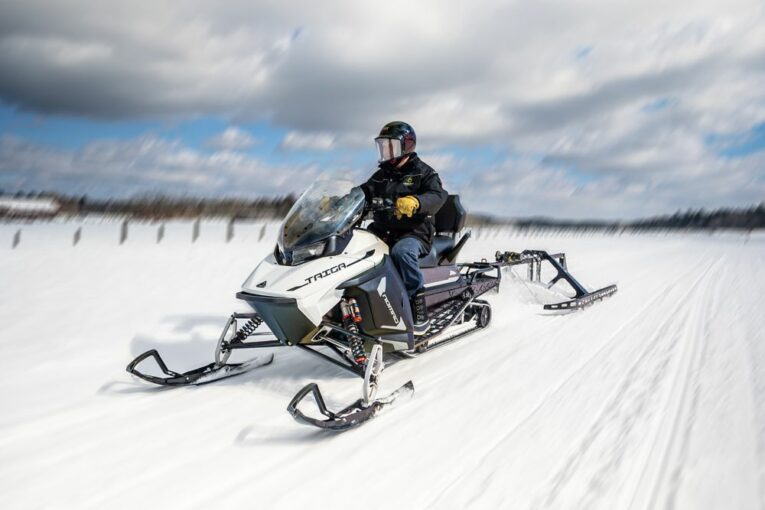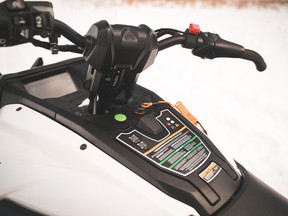
Taiga Motors Corp. said it had begun delivering the Nomad, the world’s first electric snowmobile, albeit late in the season because supply issues related to the pandemic put its debut behind schedule.
“We’re fortunate that we have a very large backlog in demand for these vehicles,” CEO Sam Bruneau said in an interview on March 18, a day after springlike temperatures melted much of the snow in Montreal, where Taiga is based. “We’re working to ramp up production to make sure we get customers their units as soon as possible.”
Bruneau declined to specify the exact quantity of orders, noting that they would be disclosed when their financials are released at the end of the month. According to a November press release, customers had pre-ordered 2,632 units as of October 2021.
The Nomad costs about $19,000 in Canada, compared with an average price for a snowmobile of $15,000. Taiga’s other models include the Ekko Mountain and Atlas Crossover snowmobiles, as well as the Orca electric jet ski.
Bruneau acknowledged that the cost was higher than average, but added that the savings in maintenance costs more than makes up for the difference. Lugging jerry cans of gasoline to the dock to refill your jet ski’s tank is a thing of the past, said Bruneau.
Cost-wise, Taiga’s machines are on par with equivalent premium, high-performing gas-powered models, Bruneau said.

Taiga was founded by Bruneau and two other McGill University engineering students with the goal of producing the world’s first electric powersport vehicles, including snowmobiles and jet skis.
The three founders grew up in Quebec, where snowmobiles were — and continue to be — ubiquitous. “We started wondering why nobody was working to electrify these off-road vehicles where it makes so much sense for it to be electric,” he said. “These are vehicles that pass through some of the most pristine environments: mountains, trees, and lakes.”
But personal watercraft and snowmobiles are known for their powerful engines, high speeds, and easy maneuverability, characteristics that have proven challenging to replicate with electricity.
Creating an electric off-road vehicle is different than creating an electric car, said Bruneau. Off-road vehicles need to be lighter, yet equipped to withstand harsher, more unforgiving terrain than a standard passenger car.
The company’s research and development costs have risen steadily.
Taiga is working to create infrastructure for their vehicles, and has launched an electric off-road charging network, which consists of “on-water” charging installations at marina docks and in forests. The vehicles can also use standard electric vehicle charging stations or a wall outlet in your home.
The company is present in Ontario and Quebec, but hopes to expand to other Canadian provinces and territories, and to the United States as well. In the long term, Bruneau hopes to expand to other off-road vehicles, like side-by-side vehicles.
“It was a long road to get here,” he said. “Six years of intense R&D, and then a really big effort to bring all this to production.”
• Email: [email protected] | Twitter: marisacoulton
You can read more of the news on source
